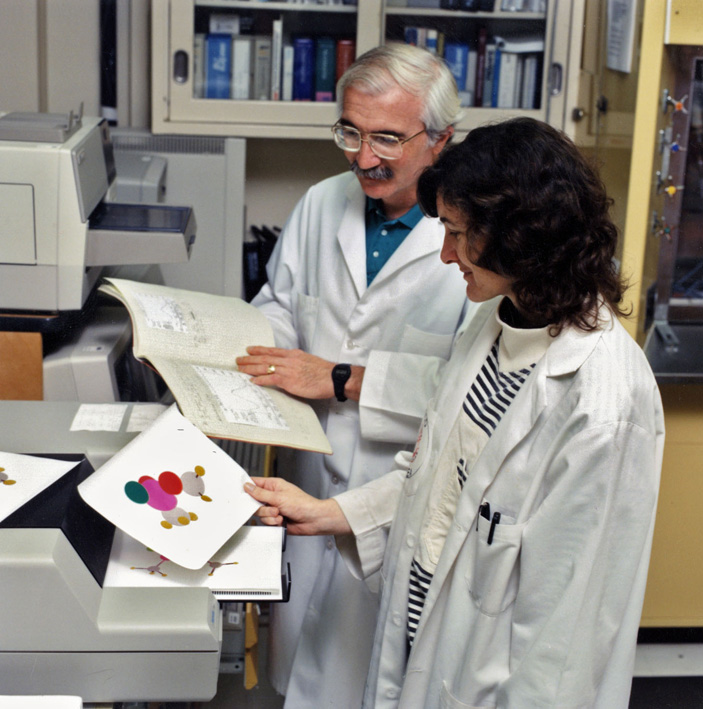Senior Scientist Retires from USAMRICD

Donald Maxwell, a senior research chemist, principal investigator and team leader at the U.S. Army Medical Research Institute of Chemical Defense, Aberdeen Proving Ground, Md., retired in July after 44 years of federal service. Throughout his career, Maxwell participated in numerous research efforts, making major contributions to the development of medical countermeasures for chemical warfare nerve agents, specifically in the development of bioscavenger pretreatments, oximes for use as reactivators, and carbamates. His work led to significant advancements in the selection of appropriate animal models, design and testing of novel drugs, and understanding of the molecular mechanisms of medical countermeasures against chemical threats. Additionally, Maxwell provided guidance, advice and subject matter expertise at multiple levels of the Department of Defense and the U.S. government, and has helped to steer the direction of scientific research at the institute.
"Today, USAMRICD is saying farewell to one of its legends," said Col. Bruce Schoneboom, USAMRICD commander, at a celebration honoring Maxwell's service. "Don has contributed decades of research results protecting against chemical threats and his impact to national security has been tremendous. The welcome mat will always be out for Don Maxwell."
According to Dr. David Lenz, who retired from the USAMRICD in 2011 and worked closely with Maxwell on several projects, Maxwell's "success in clearly conveying information in a concise and understandable manner demonstrated [his] deep understanding of the science involved and the practical utility of the efforts of the institute's scientists."
"Your retirement from MRICD will leave a void that will be difficult to fill," wrote Lenz in a message conveying his congratulations to Maxwell on this milestone.
Maxwell arrived at the MRICD predecessor laboratory, the Biomedical Research Laboratory, as an enlisted research assistant in 1969, having been drafted while enrolled at the University of Miami, Florida, in a doctoral program in biochemistry. He was hired as a civilian chemist in 1972.
A major topic of Maxwell's research efforts was understanding interspecies variation in the extent of protection against nerve agents afforded by carbamate pretreatment and post-exposure oxime administration. A published paper that analyzed interspecies variation of carbamate protection provided the scientific basis for the U.S. Army's successful New Drug Application for pyridostigmine, a carbamate drug that was the first to be approved for human use under the "animal efficacy rule"; this rule allows submission of animal data when it is impossible to ethically conduct human safety studies. A data package prepared and analyzed by Maxwell for the U.S. Food and Drug Administration provided critical information that directly resulted in approval of pyridostigmine for use in protecting military personnel against nerve agents.
Dr. Eric Moore, chief of the Advanced and Emerging Threat Division at the Defense Threat Reduction Agency, described Maxwell as someone who could always "be counted on to provide innovative scientific ideas and sound technical advice to DTRA Program managers."
In addition to his scientific accomplishments in the laboratory, Maxwell brought recognition to the USAMRICD through his many interactions with the international scientific community. He became a central point of contact for information about chemical agent toxicities as well as the efficacy of medical countermeasures against highly toxic chemical agents, which included serving as the Department of Defense representative on several international task forces and working groups.
"I have always been grateful for his wisdom, insight and experience in the interpretation of our data," conveyed Dr. Helen Mumford of the United Kingdom's Defence Science and Technology Laboratory in an email. "The international research community will miss his contributions."
On the domestic front, Maxwell served as the research coordinator for a DoD Defense Technology Objective and as a USAMRICD program advisor. As a result, Maxwell was widely recognized as a subject matter expert on medical countermeasures for highly toxic chemical agents and delivered lectures on that topic to such government organizations as the Environmental Protection Agency, FDA, Department of Agriculture, Department of Health and Human Services, Naval War College, National Defense University, Homeland Security Council, Federal Bureau of Investigation, and the Joint Special Operations Command.
Maxwell's research accomplishments resulted in 80 peer-reviewed open literature scientific articles and 16 government publications, 3 patents, and more than 130 presentations at government, national, and international scientific meetings. He has been a reviewer for more than 10 scientific journals, and provided consultative support to more than 14 national and international organizations and committees. His superior accomplishments have earned him numerous awards, including ten Exceptional Performance Awards, five Special Acts awards, an R&D Achievement award, three Commander's Medals, two Achievement Medals for Civilian Service, and a Superior Civilian Service Award. Upon his retirement, he was presented with the Meritorious Civilian Service Award and the Army Medical Department 30-year medallion.
 An official website of the United States government
An official website of the United States government
 ) or https:// means you've safely connected to the .mil website. Share sensitive information only on official, secure websites.
) or https:// means you've safely connected to the .mil website. Share sensitive information only on official, secure websites.


